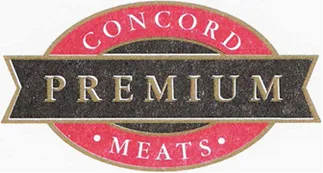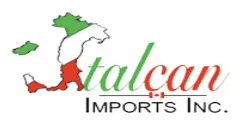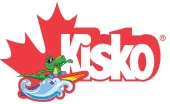What is the function of Ministry of Health Canada?
Health Canada is responsible for helping Canadians maintain and improve their health. It ensures that high-quality health services are accessible and works to reduce health risks.
You can visit below link for more information. https://www.canada.ca/en/health-canada.html
What is CFIA (Canadian Food Inspection Agency?
The Canadian Food Inspection Agency is dedicated to safeguarding food, animals and plants, which enhances the health and well-being of Canada’s people, environment and economy.
You can visit below link for more information. www.inspection.gc.ca
What is GMP?
GMP means Good Manufacturing Practices. GMP (Good Manufacturing Practice) is a system to ensure that products meet food safety, quality and legal requirements. As a food manufacturer you should have GMP in place.
What is Codex Alimentarius?
The CODEX ALIMENTARIUS international food standards, guidelines and codes of practice contribute to the safety, quality and fairness of this international food trade. Consumers can trust the safety and quality of the food products they buy, and importers can trust that the food they ordered will be in accordance with their specifications.
You can visit below link for more information. http://www.fao.org/fao-who-codexalimentarius/about-codex/en/
What are the benefits of implementing Food Safety and Quality Programs?
✔️ Food Industry Demand – more & more customers are demanding.
✔️ Assure product safety and authenticity
✔️ Provide brand protection
✔️ Meet legislative requirements
✔️ Promote customer and consumer confidence
✔️ Reduce waste, rework. customer complaints, withdrawal and recall
✔️ Increase productivity
✔️ Identify and control problems before they go out of control
✔️ Save you from lawsuits and costly recall
✔️Peace of Mind
What is HACCP?
Hazard analysis and critical control points, or HACCP is a systematic preventive approach to food safety from biological, chemical, and physical hazards in production processes that can cause the finished product to be unsafe and designs measures to reduce these risks to a safe level.
What is QMP (Quality Management Program)?
The Quality Management Program (QMP) is one example of a type of preventive control plan (PCP). The QMP is based on the Hazard Analysis Critical Control Point (HACCP) approach to food safety and, for many years, this program has been implemented by food operators in the fish and seafood sector. The program provides assurance that fish products are prepared under sanitary conditions, are safe, wholesome and meet Canadian requirements, including those on labelling and standards of identity.
You can visit below link for more information. https://inspection.gc.ca/food/requirements-and-guidance/preventive-control-plans/qmp-approach/eng/1523455002217/1523455002607
What is Export Certification Control Program (ECCP)?
Anyone who wants to export a food needs to determine if there are unique requirements imposed by the foreign country, and if an export certificate is required from the Canadian Food Inspection Agency (CFIA). In order to receive an export certificate, the CFIA requires exporters to demonstrate that they have control measures in place to ensure the safety of the foods they export, and that they meet all Canadian and / or foreign country requirements.
You can visit below link for more information. https://www.inspection.gc.ca/exporting-food-plants-or-animals/food-exports/export-certification-control-program/eng/1527252923495/1527252981753
What is GFSI?
The Global Food Safety Initiative (GFSI) is a private organization, established and managed by the international trade association, the Consumer Goods Forum under Belgian law in May 2000. The GFSI maintains a scheme to benchmark food safety standards for manufacturers as well as farm assurance standards.
The Global Food Safety Initiative is a business-driven initiative for the continuous improvement of food safety management systems to ensure confidence in the delivery of safe food to consumers worldwide. GFSI provides a platform for collaboration between some of the world’s leading food safety experts from retailer, manufacturer and food service companies, service providers associated with the food supply chain, international organizations, academia and government.
You can visit below link for more information.
Which standards are recognized by GFSI?
✔️ FSSC 22000
✔️ SQF Code
✔️ BRC Global Standard for Food Safety
✔️ BRC-IOP Global Standard for Packaging and Packaging Materials
✔️ IFS Version 6
✔️ Canada GAP
✔️ Global Red Meat Standard (GRMS)
✔️ PrimusGFS Standard
✔️ IFS PAC secure
✔️ IFS Logistics
What is BRC Global Standard?
BRCGS is a leading brand and consumer protection organisation, used by over 29,000 certificated suppliers over 130 countries, with certification issued through a global network of accredited certification bodies. BRCGS’ Standards guarantee the standardisation of quality, safety and operational criteria and ensure that manufacturers fulfil their legal obligations and provide protection for the end consumer. Certification to BRCGS’ Standards is now often a fundamental requirement of leading retailers, manufacturers and food service organisations.
You can visit below link for more information. www.brcgs.com
What is SQF (Safe Quality Food)?
The Safe Quality Food (SQF) Program is a rigorous and credible food safety and quality program that is recognized by retailers, brand owners, and food service providers world-wide. Recognized by the Global Food Safety Initiative (GFSI), the SQF family of food safety and quality codes are designed to meet industry, customer, and regulatory requirements for all sectors of the food supply chain – from the farm all the way to the retail stores.
You can visit below link for more information. http://www.sqfi.com
What is FSSC 22000 (Food Safety System Certification 22000)?
FSSC 22000 contains a complete certification Scheme for Food Safety Management Systems based on existing standards for certification (ISO 22000, ISO 22003 and technical specifications for sector PRPs).
You can visit below link for more information. http://www.fssc22000.com
What is FSMA?
The term “FSMA” Food Safety Modernization Act is a food safety legislation amending the Food, Drug and Cosmetic Act that was enacted in January of 2011 in the USA.
The FDA Food Safety Modernization Act (FSMA) is transforming the United nation’s food safety system by shifting the focus from responding to foodborne illness to preventing it. Congress enacted FSMA in response to dramatic changes in the global food system and in our understanding of foodborne illness and its consequences, including the realization that preventable foodborne illness is both a significant public health problem and a threat to the economic well-being of the food system.
You can visit below link for more information. https://www.fda.gov/food/guidance-regulation-food-and-dietary-supplements/food-safety-modernization-act-fsma
What is HARPC?
HARPC stands for “Hazard Analysis and Risk-Based Preventive Controls.”
As required by FSMA, FDA promulgated the HARPC regulation (also referred to as the “Preventive Controls Rule” for the food industry on September 17, 2015.
You can visit below link for more information. www.harpc.com
What is SFCR?
Canada is recognized as having one of the strongest food safety systems in the world. The Safe Food for Canadians Regulations (SFCR) make our food system even safer by focusing on prevention and allowing for faster removal of unsafe food from the marketplace. Under these regulations, as of January 15, 2019, new licensing, preventive control and traceability requirements apply to food businesses that import or prepare food for export or to be sent across provincial or territorial boundaries.
You can visit below link for more information. https://www.inspection.gc.ca/food/eng/1299092387033/1299093490225
What is Gluten Free Certification Program (GFCP)?
First published in 2009, the Gluten-Free Certification Program (GFCP) Global Standard is now in its third issue and is well-established globally. It provides a framework for the management and control of gluten in gluten-free products, in the manufacture, processing and packing of foods, ingredients, pet foods, cosmetics, natural health products and drugs.
You can visit below link for more information. https://www.brcgs.com/brcgs/gluten-free-certification-program/
What is Food Fraud?
Food fraud is generally seen as the deliberate and intentional substitution, addition, tampering or misrepresentation of food, food ingredients or food packaging for economic gain. Food fraud may be known by other terms, such as “food crime,” “food related criminality” or even “fake food,” and often misleads consumers to pay a higher price for an inferior product.
You can visit below link for more information. https://www.inspection.gc.ca/food/information-for-consumers/food-safety-system/food-fraud/eng/1548444446366/1548444516192
What is VACCP?
VACCP stands for Vulnerability Assessment and Critical Control Points. It focuses on food fraud as well and widens the scope to include systematic prevention of any potential adulteration of food, whether intentional or not, by identifying the vulnerable points in a supply chain. It is especially concerned with economically motivated adulteration (EMA). Examples include product substitutions, unapproved product enhancements, counterfeiting, stolen goods and others.
What is TACCP?
TACCP stands for Threat Assessment and Critical Control Points. This protocol focuses on tampering, intentional adulteration of food, and food defence.
TACCP generally requires a wider range of employee involvement than HACCP, as it covers issues such as manufacturing plant and transportation security, IT security, and employee background checks.
Expert Food Safety and Certification
Ensure compliance with HACCP, GFSI, and certifications like Kosher, Halal, and Organic. Our consulting, auditing, training, and labeling services help protect your brand, streamline certification, and create appealing, compliant labels.
Who We Are "FSCA"?
The “FSCA” serves food supply chain clients in becoming a prestigious brand in the
competitive market with HACCP or GFSI Standards and Product Identity Standard
Certification. We serve our clients with auditing services to verify their existing system
for continuous improvement as well as upgrade to GFSI standards; training services to
educate production staff to senior management and labeling services to help them
increase revenue by designing a label that meets target consumer market as well
regulatory requirements.
CONSULTING

Be a prestigious brand in the competitive market with HACCP or GFSI standards Certification and product identity certification such as Kosher, Halal, Organic, Gluten-Free etc.
AUDITING

Save yourself from costly HACCP or GFSI certification audit fees and poor audit rating with HACCP or GFSI certification audit readiness checks.
TRAINING

Be confident and at peace knowing that your staff are continuously producing safe, legal, authentic, and quality food products continuously by educating and training them in the food safety and quality programs.
LABELING

Increase sales by designing attractive and unique product labels to attract target consumers and at the same time meet regulatory requirements.
Our Clients
Our services are trusted by leading brands around the world.






Our Clients
Our services are trusted by leading brands around the world.

© copyright FSCA 2026
LABELING
FAQS
CONTACT US
53 Matthew Harrison St,
Brampton,
Ontario,
L6P 3H3,
Canada
CONNECT
LEGAL
© copyright FSCA 2026

© copyright FSCA 2026
